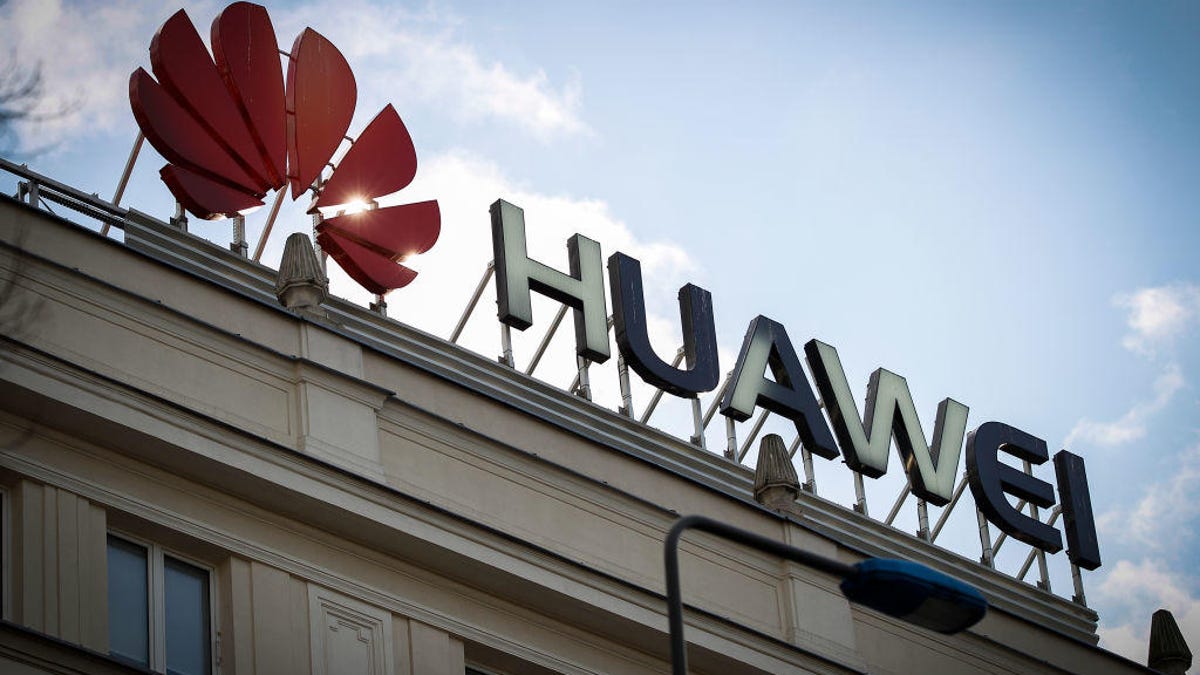Huawei CFO may face formal extradition to the US, says report
Canada's ambassador to the US tells the Globe and Mail about the upcoming request.

The US is reportedly preparing to seek the extradition of Huawei's chief financial officer from Canada.
The US will formally request the extradition of Huawei Chief Financial Officer Meng Wanzhou from Canada, according to a Monday report.
Canada's ambassador to the US, David MacNaughton, discussed the impending request with the Toronto-based Globe and Mail but didn't say when it'll happen.
The Canadian Department of Justice said in an email that it hasn't received an extradition request from the US, and noted that the deadline for filing is Jan. 30 -- 60 days after Meng's Dec. 1 arrest. It'll then have another 30 days to decide whether or not to proceed.
China reportedly demanded that the US drop its request, with Chinese Foreign Ministry spokeswoman Hua Chunying saying Canada's extradition treaty with the US infringed on the "safety and legitimate rights and interests of Chinese citizens."
Meng is both an executive of Chinese telecommunications giant Huawei and the daughter of company founder Ren Zhengfei. She was arrested in Vancouver at US request over alleged violations of Iran sanctions. She was released on bail last month and has a Feb. 6 court date in Vancouver.
Ren Zhengfei made his first public statements to foreign media since 2015 last week to deny allegations that his company had a role in Chinese spying. He also used the opportunity to praise President Donald Trump, who was apparently unaware of the plan to arrest Meng.
Tensions between Canada and China have grown since the arrest, with China reportedly warning last week of repercussions if the Canadian government banned Huawei from supplying technology for the country's 5G rollout.
China also detained two Canadians -- diplomat Michael Kovrig and entrepreneur Michael Spavor -- in the days following Meng's arrest, and a Chinese court sentenced Canadian Robert Lloyd Schellenberg to death in a sudden retrial of a drug smuggling case.
Huawei Chairman Liang Hua spoke out against the extradition request at the World Economic Forum in Davos, Switzerland. "We are following this issue closely but haven't had direct contact with the authorities," Liang said during a speech. "We will call for a quick conclusion for Ms. Meng so that Ms. Meng can have her personal freedom."
During the same speech, Liang vaguely warned that the company may avoid doing business western countries in the future. Specifically Huawei suggested it would take its technology to "countries where we are welcomed," rather than struggle with regulatory restriction. It's an odd statement, but it can be seen as a vague threat to companies looking to move into 5G.
Huawei echoed Liang's comments in an emailed statement.
"We are aware of the report in question and are closely monitoring the situation," it wrote.
"Huawei complies with all applicable laws and regulations in the countries and regions where we operate, including export control and sanction laws of the UN, US, and EU. We have every confidence that the Canadian and US legal systems will reach a just conclusion."
Like many other telecom equipment suppliers, Huawei contributes some of its intellectual property to the global standard for 5G wireless technology. As such, the company holds a lot of influence on what 5G looks like and has developed a number of patents for the technology. Huawei packing up and sticking to only a select number of countries could mean some companies would lose access to its technology.
That could also hurt countries that have traditionally worked with Huawei, but are considering banning the company from future projects due to security concerns. But it's unclear how big of an impact that would have on countries like the US, which have long banned Huawei from its networks.
Last summer, Huawei overtook Apple to become the world's No. 2 phone seller (behind Samsung), despite many of its devices being unavailable in the US. The US government and its contractors are also restricted from buying certain telecommunications and video surveillance equipment from Huawei and a handful of other Chinese communications companies.
The US Justice Department didn't immediately respond to a request for comment.
First published Jan. 22, 7:03 a.m. PT.
Updated, 11:29 a.m. PT: Adds more background on Huawei.
Updated 3:22 p.m. PT: Added comments from Huawei chairman.
Updated Jan. 23, 2:54 a.m. PT: Adds details from Canadian Department of Justice and Huawei comment.
CES 2019: See all of CNET's coverage of the year's biggest tech show.
Blockchain Decoded: CNET looks at the tech powering bitcoin -- and soon, too, a myriad of services that will change your life.

